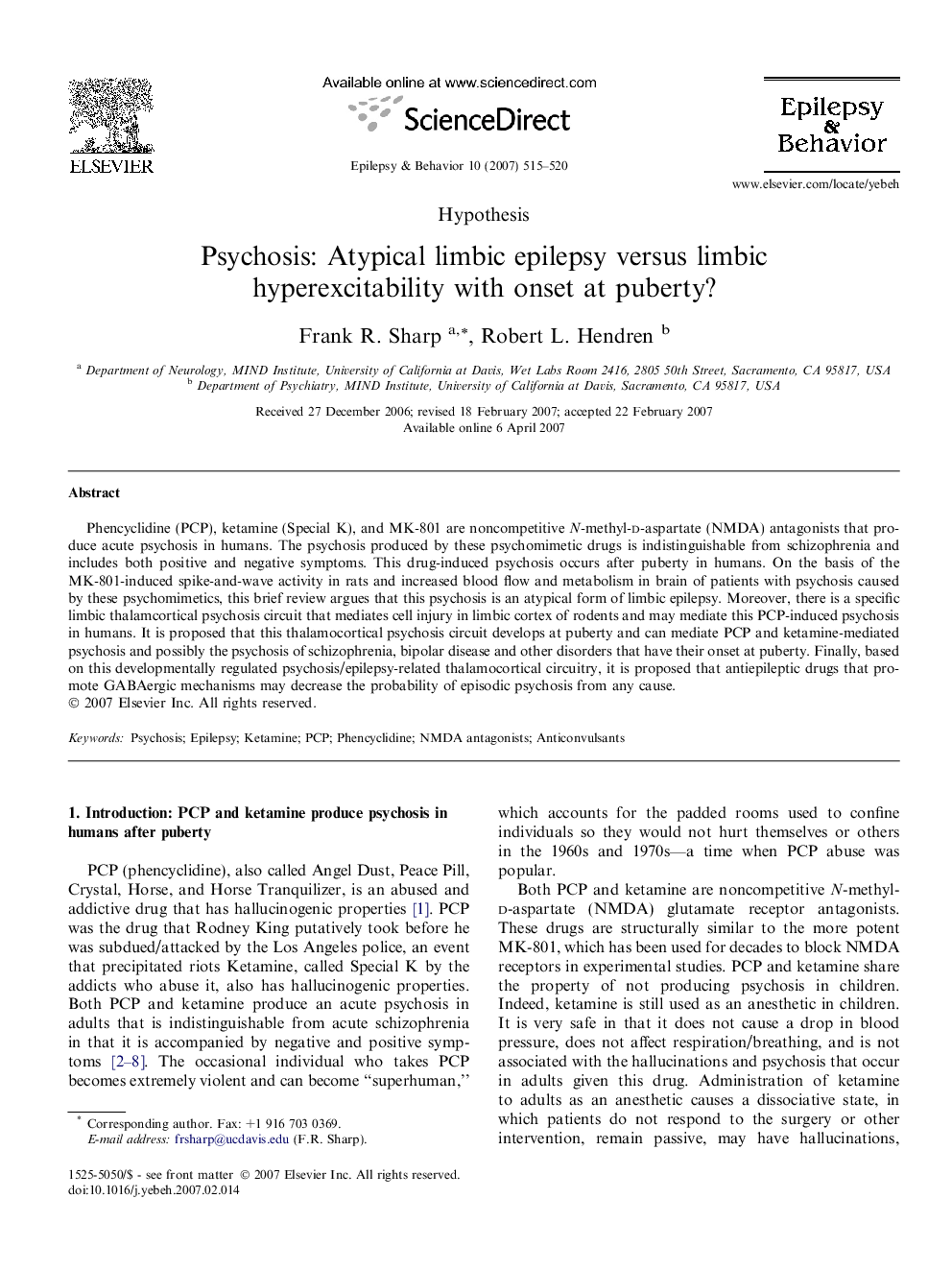| Article ID | Journal | Published Year | Pages | File Type |
|---|---|---|---|---|
| 3051207 | Epilepsy & Behavior | 2007 | 6 Pages |
Phencyclidine (PCP), ketamine (Special K), and MK-801 are noncompetitive N-methyl-d-aspartate (NMDA) antagonists that produce acute psychosis in humans. The psychosis produced by these psychomimetic drugs is indistinguishable from schizophrenia and includes both positive and negative symptoms. This drug-induced psychosis occurs after puberty in humans. On the basis of the MK-801-induced spike-and-wave activity in rats and increased blood flow and metabolism in brain of patients with psychosis caused by these psychomimetics, this brief review argues that this psychosis is an atypical form of limbic epilepsy. Moreover, there is a specific limbic thalamcortical psychosis circuit that mediates cell injury in limbic cortex of rodents and may mediate this PCP-induced psychosis in humans. It is proposed that this thalamocortical psychosis circuit develops at puberty and can mediate PCP and ketamine-mediated psychosis and possibly the psychosis of schizophrenia, bipolar disease and other disorders that have their onset at puberty. Finally, based on this developmentally regulated psychosis/epilepsy-related thalamocortical circuitry, it is proposed that antiepileptic drugs that promote GABAergic mechanisms may decrease the probability of episodic psychosis from any cause.
